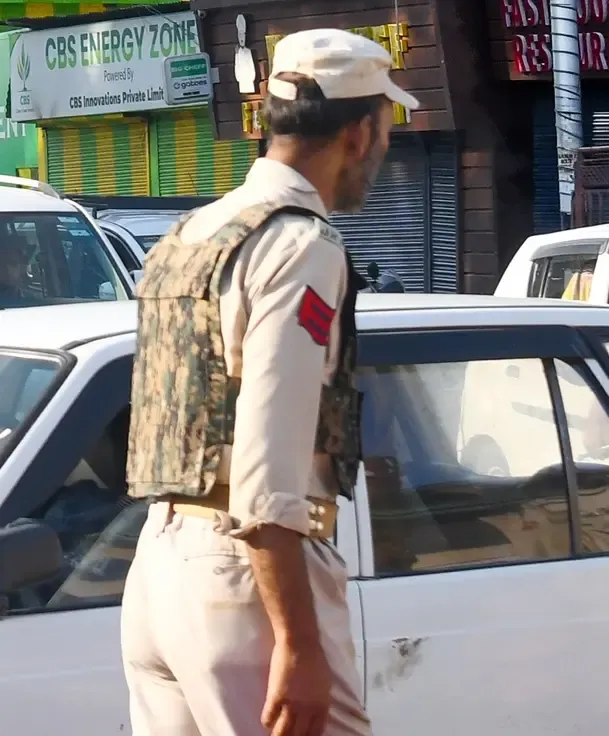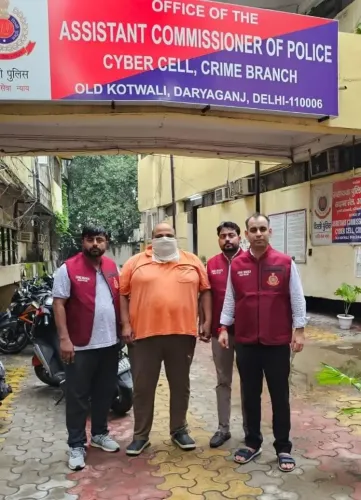Did J&K Police Enforce Community Service on Three Intoxicated Individuals?

Synopsis
Key Takeaways
- Community service is a rehabilitative alternative to imprisonment.
- Police enforced community service for three individuals under court orders.
- The initiative aims to promote social responsibility and deter substance abuse.
- The Bharatiya Nyaya Sanhita, 2023, allows for community service as punishment.
- Bandipora Police hold a zero-tolerance policy towards public disturbances.
Srinagar, Sep 28 (NationPress) In a notable development, authorities in the Bandipora district of Jammu and Kashmir executed community service for three individuals found intoxicated in public, following judicial orders.
A police announcement indicated, “In a decisive move to maintain peace, order, and social responsibility within the district, Bandipora Police, under the guidance of the Hon’ble Court, have mandated community service as a corrective action for three individuals who were discovered intoxicated at public locations, thereby causing disturbances to public tranquility.”
The identified individuals are Amir Sheikh, son of Mohammad Shafi Sheikh, residing in Ashtangoo; Umer Shakeel, son of Shakeel Ahmad Haji, also from Ashtangoo; and Sajad Ahmad Khan, son of Gh. Hassan Khan, who lives in Shokbaba Sumlar.
“These individuals were apprehended after being seen under the influence of substances in public areas, which caused disruption and inconvenience to the general populace. Following legal proceedings, the Hon’ble Court ordered them to undergo community service as part of their corrective punishment,” stated the police.
Community service is increasingly being acknowledged as a positive alternative to traditional punitive approaches. Instead of facing incarceration or hefty fines, these individuals are encouraged to contribute positively to the community, allowing them to understand the implications of their actions and deterring them from future offenses, as mentioned in the statement.
Bandipora Police reiterated their zero-tolerance stance towards activities that disrupt public order and social harmony, according to officials.
Moreover, police authorities emphasized that such initiatives aim to reform individuals, particularly the youth, steering them away from substance abuse and unlawful conduct.
“The community, especially the younger generation, is encouraged to avoid substance abuse and other disruptive behaviors that jeopardize their health and future, as well as negatively affect societal peace and progress. Bandipora Police have assured residents that stringent actions will persist against anyone engaged in activities that compromise peace and law and order,” the police remarked.
The police department has committed itself to upholding the rule of law, ensuring public safety, and striving for a peaceful, drug-free society in Bandipora.
It is noteworthy that community service as a reformative punishment was made possible through the enactment of The Bharatiya Nyaya Sanhita, 2023 (BNS).
The BNS represents a significant transformation in the Indian criminal justice framework by introducing community service as a feasible option for penalizing minor offenses. Effective from July 1, 2024, it has officially replaced the Indian Penal Code, 1860 (IPC). Community service, or community sentencing, requires offenders to work unpaid for the benefit of society.
This aligns with the reformative punishment theory, which focuses on rehabilitating offenders for their reintegration into society, and the principles of restorative justice, which aim to remedy the harm caused by criminal behavior through community reconciliation and, where applicable, victim engagement. These principles reflect a progressive shift in the Indian criminal justice system.









